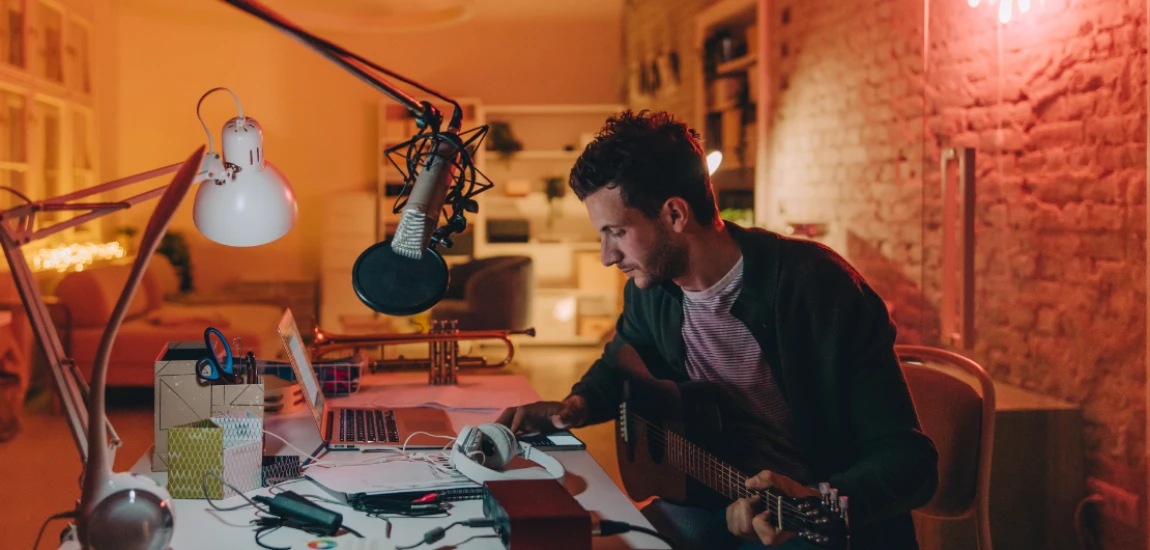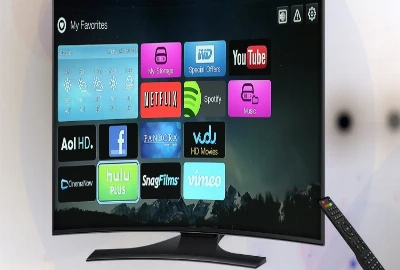The Evolution of AI in Music Production and Songwriting

Artificial intelligence has infiltrated nearly every creative field, and music is no exception. The evolution of AI in music production and songwriting represents one of the most fascinating intersections of technology and artistry in modern times. From AI-driven composition software to virtual mastering engineers, musicians now have access to tools that can accelerate workflows, spark creativity, and even generate entire songs in seconds.
However, while these innovations are exciting, they also raise questions: Will AI replace musicians? What role does human creativity still play? How do ethical and copyright issues fit into this rapidly changing landscape?
In this article, we’ll trace the journey of AI in music, explore its impact on production and songwriting, and examine what the future holds for artists, producers, and listeners.
The Early Stages of AI in Music

The First Experiments with AI-Generated Sounds
AI in music didn’t appear overnight. As far back as the 1950s and 1960s, researchers experimented with algorithms to generate melodies and rhythms. One famous early project was the “Illiac Suite” (1957), considered the first piece of music composed by an algorithm. Though primitive, it showed the potential for computers to assist in creativity.
From Academic Curiosity to Practical Tools
Initially, AI’s role in music was confined to universities and research labs. Over time, as computing power grew, experimental tools became practical applications. MIDI sequencing, algorithmic composition, and digital synthesis were early stepping stones that blurred the line between human and machine-driven music.
How This Set the Stage for Today’s Tools
These early systems laid the foundation for today’s AI-driven platforms like AIVA, Amper Music, and OpenAI’s MuseNet. Without the groundwork of mathematical composition and algorithmic patterns, the sophisticated generative tools we now use wouldn’t exist.
AI in Modern Music Production

AI-Powered Mixing and Mastering
One of the most widespread applications of AI today is in mixing and mastering. Platforms like LANDR and iZotope Ozone use machine learning to analyze tracks and apply mastering presets in minutes—something that once required trained engineers and expensive studios.
Time-Saving Benefits for Independent Musicians
For indie artists and small producers, these tools are a game-changer. They reduce production costs while still providing professional-quality sound, making it easier for musicians to release polished tracks without industry-level budgets.
Limitations of AI in Production
While AI tools are efficient, they aren’t perfect. They often lack the nuance and creativity that human engineers bring, such as intentionally breaking rules for artistic effect. This is where human oversight remains essential.
AI and the Songwriting Process

AI as a Creative Collaborator
Songwriting is deeply personal, yet AI can enhance the process by suggesting chord progressions, generating lyrics, or even creating entire melodies. Tools like ChatGPT, AIVA, and Amper Music allow musicians to brainstorm ideas faster and break through creative blocks.
Lyric Generation and Emotional Tone
AI lyric generators can mimic styles from pop to rap, producing words that match specific moods. While these results often need human refinement, they can provide a strong foundation for songwriters struggling with writer’s block.
Challenges in Authenticity
Despite their strengths, AI-generated songs often lack the emotional depth of human-written music. This sparks debate: Can a machine truly capture heartbreak, joy, or nostalgia in the same way a human can?
The Rise of AI-Powered Virtual Musicians

Virtual Bands and AI Artists
We’ve already seen the rise of virtual musicians like FN Meka, an AI-generated rapper, and AIVA, an AI composer recognized by music rights organizations. These entities are redefining what it means to be a “musician.”
Implications for the Industry
Virtual musicians challenge traditional norms. Do they compete with human artists, or do they open new creative possibilities? Record labels are experimenting with AI-driven artists, but public reception remains mixed—some embrace the novelty, others criticize it as gimmicky.
AI in Collaboration with Humans
The most promising approach may be hybrid collaborations where AI provides structure or experimentation while humans add emotional storytelling and performance. This balance creates innovative music without fully replacing human artistry.
Ethical and Copyright Concerns

Ownership of AI-Generated Music
One of the biggest debates centers on who owns music created by AI. If an algorithm composes a song, does the programmer, the user, or the AI itself hold the rights? Current laws are struggling to keep up.
Ethical Use of Training Data
AI tools often train on existing music datasets. If these datasets include copyrighted works, the question arises: is AI music essentially plagiarizing? Musicians and rights organizations are pushing for clearer transparency.
Striking a Balance
The key lies in responsible use—AI should be a tool for inspiration and assistance, not a replacement for original artistry. The industry must adapt regulations to protect both creators and innovators.
How Musicians Can Use AI Effectively

Overcoming Creative Blocks
Musicians can use AI lyric generators, melody suggestions, or rhythm builders to overcome stagnation in the creative process. Instead of replacing creativity, AI acts as a brainstorming partner.
Streamlining Production Workflows
From mixing automation to mastering presets, AI can handle technical tasks, freeing artists to focus on the emotional and creative aspects of their music.
Building a Personal Workflow with AI
The most successful musicians integrate AI into their process without letting it dominate. For example, they might use AI for draft lyrics or demo beats but refine the final product manually. This balance ensures authenticity while leveraging efficiency.
The Future of AI in Music Production and Songwriting

Increasingly Personalized AI Tools
Future AI platforms will likely adapt to individual musicians’ preferences, offering customized chord progressions, tones, and styles that align with their artistic identity.
Expansion into Live Performances
AI is also making its way into concerts, with real-time music generation and virtual performers enhancing stage experiences. Audiences may soon see shows where human and AI musicians perform together.
A World of Collaboration, Not Replacement
The future doesn’t mean AI will replace human musicians—it means music will evolve into a hybrid space where human emotion and machine efficiency work hand in hand. The most compelling music will likely come from collaborations between both worlds.




